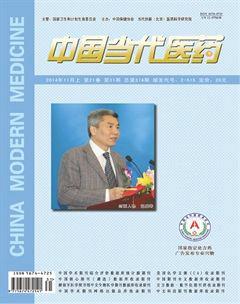口腔癌患者创伤后成长的干预模式研究
周琴飞++++赵佳正
[摘要] 创伤后成长(PTG)是指人们在与癌症等创伤事件进行抗争后主观体验到的心理上的正性变化,其产生有助于患者走出疾病阴影,积极乐观地看待疾病和生活,因此受到广泛关注并应用于各种疾病的研究。目前口腔癌患者PTG的相关研究较少,本文通过回顾癌症与PTG的相关文献,构建了一个口腔癌患者应对策略干预的概念性框架,为今后的进一步研究提供思路。
[关键词] 创伤后成长;口腔癌;应对策略
[中图分类号] R781.9 [文献标识码] A [文章编号] 1674-4721(2014)11(a)-0194-03
创伤事件是指实际存在或潜在的,使生命受到威胁或严重伤害的事件,包括死亡的威胁、严重的创伤或身体完整性的丧失等。癌症作为一种危及生命的严重的疾病创伤,包含创伤事件所具有的特征。在国内外,许多临床及理论研究者对癌症开展了大量的研究,但多集中于对其症状的测量,特别是对癌症患者的消极体验及负面情绪有较大的关注。很多临床经验和实践研究表明许多癌症患者在结束治疗多年后,通过癌症疾病的经历感受到了自己产生的显著且积极的变化,即创伤后成长(posttraumatic growth,PTG)。
1 PTG的定义
PTG是指人们在与生活中具有创伤性质的事件或者情境(如癌症、自然灾难等)进行抗争后主观体验到的心理上的正性变化,是一种积极的转变。通常情况下创伤事件所导致的痛苦情绪会引发反复的沉思及试图减轻痛苦的行为尝试。最初,沉思多是自动、侵入式的,表现为常常回到创伤相关问题的思考,具有自发、消极的特点。在最初的应对成功(如痛苦情绪的减轻)之后,沉思转变为更有意义的对创伤事件及其生活影响的思考,具有积极、主动的特点,从而个体的认知方式有了改变,生活叙事得到发展,最终产生PTG。
2 应对策略与PTG
Taylor等[1]回顾了一系列关于创伤事件(如癌症、心脏病和HIV感染)与PTG的文献,发现拥有积极应对过程的个体能更好地适应并形成PTG,认为应对策略是PTG形成的主要关键。之后大量的研究也证实了积极的应对策略与PTG形成密切相关[2-8],但想要了解应对策略的“过程”和“结果”仍比较复杂,因此目前很难在癌症管理常规加入应对策略干预。
3 口腔癌患者应对策略干预的概念性框架
本文回顾了在PubMed、Medline和PsycINFO检索到的关于癌症与PTG的相关文献,发现PTG在乳腺癌领域中研究较多,但在其他癌症领域中则相关研究较少。口腔癌患者作为癌症患者中很重要的一个群体,由于疾病的生物学特点和治疗方式,会造成伴随的功能丧失及心理社会问题如生活质量下降等,因此PTG形成对口腔癌患者来说有深远的意义,然而目前相关的文章很少,本文通过总结癌症与PTG的相关研究文献,鉴别出可能促进口腔癌患者形成PTG的应对策略及其主要相关因素,构建了一个口腔癌患者应对策略干预的概念性框架(图1),为今后的进一步研究提供思路。
图1 口腔癌患者应对策略干预的概念性框架
3.1 个性特征和社会支持
研究发现癌症患者应对策略的相关因素包括社会人口学特征、疾病类型、个性特征和社会支持等,其中个性特征、社会支持被视为可干预因素。乐观外向、充满希望的特质使患者更倾向于采取积极的应对策略,包括对疾病的积极评价、树立信心以及积极解决问题等[2-4,9-15]。社会支持在癌症处理中也占有重要角色,包括口腔癌患者[16-17],其中来自配偶和家人的支持对于促成积极应对策略、形成PTG尤其重要[17-19]。在疾病早期纳入夫妻或家庭治疗能更早地给予患者以及配偶必要的帮助。另一类社会支持则来自于与病友的接触,研究发现多与病友交流有利于促进患者的积极应对[20]。此外,来自朋友以及医疗团队(包括临床医生和心理医生)的支持也与PTG形成密切相关[5-6,16,21-22]。
3.2 发现益处和寻求意义
在PTG过程中有两个很重要的概念就是“发现益处”和“寻求意义”。“发现益处”是指患者发现创伤事件所带来的益处的过程,这个过程使患者将创伤事件看成一种自我进步的机会,同时形成PTG以挽救受损的自尊[23-24]。“寻求意义”是指患者在创伤事件后不断重新审视自己的世界观、价值观,对创伤事件进行积极评价,并从整个事件经历中探索更深远的意义[23]。研究发现乐观外向的患者能更好地发现益处和寻求意义,从而选择更积极的应对过程[25],一个关于口腔癌领域的研究发现强大的婚姻或家庭支持更有利于患者发现益处和寻求意义[26]。此外,很多研究证实发现益处和寻求意义有利于患者选择积极的应对方式和沉思过程[11,13,22,24],也更容易形成PTG[27-29]。对于口腔癌患者来说,早期任何能促进患者发现益处和寻找意义的心理干预都可能有利于患者积极应对,从而最终形成PTG。
3.3 积极的应对策略
研究发现积极的应对策略包括沉思[18,22,27]、接受[8,30-31]、积极解决问题[4,7]、积极的注意力平衡[29]、对疾病的积极评价[4,8,13]、宗教和信仰应对[2,14,32]、保持幽默[6]等,其中沉思被认为能很好地预测PTG形成[27],沉思有助于创伤个体去明白、理解创伤经历,而试图去明白理解创伤经历又可以分为两种程度,第一种程度是个体试图去明白造成(创伤)损失的原因、缘由,并尝试去明白这种损失更实际的意义和益处;第二种程度是个体试图去调整自己关于“损失”的世界观,从而发现更为广大的、存在性的目的和意义,而后者更利于PTG的产生。从文献中发现不同的应对方式之间有相关性,同时这些策略可能出现在癌症康复过程的某个时间点[33]。将来可开展对相关时间点的研究,以鉴别心理社会因素干预的时机,从而形成针对疾病不同时期的策略干预。从目前的研究成果来看,在癌症早期,沉思、接受和保持幽默对于患者来说尤其重要,因为其可帮助患者对疾病建立一个更积极的预期[6,18,22,29,34]。这提示在早期进行干预治疗更有助于口腔癌患者形成积极应对策略,从而有利于重建患者对生活的信心和憧憬[5]。
4 不足之处与展望
本人基于现有的癌症与PTG的相关文献构建了一个口腔癌应对策略干预的概念性框架,其中仍需考虑诸多因素:首先,大部分证据都来自于不同癌种患者样本,对于口腔癌患者不一定适用;其次,对“应对策略”的评估没有一个统一的标准,文献中对应对策略不同的评价方式会影响结果的观察。今后仍需开展更多针对口腔癌与PTG的相关研究,为临床制订针对性的干预措施提供更直接的线索。
[参考文献]
[1] Taylor SE,Armor DA.Positive illusions and coping with adversity[J].J Pers,1996,64(4):873-898.
[2] Lelorain S,Bonnaud-Antignac A,Florin A.Long term posttraumatic growth after breast cancer:prevalence,predictors and relationships with psychological health[J].J Clin Psychol Med Settings, 2010,17(1):14-22.
[3] Thornton AA,Perez MA.Posttraumatic growth in prostate cancer survivors and their partners[J].Psychooncology,2006,15(4):285-296.
[4] Widows MR,Jacobsen PB,Booth-Jones M,et al.Predictors of posttraumatic growth following bone marrow transplantation for cancer[J].Health Psychol,2005,24(3):266-273.
[5] Karanci NA,Erkam A.Variables related to stress-related growth among Turkish breast cancer patients[J].Stress Health,2007,23(5):315-322.
[6] Schroevers MJ,Ranchor AV,Sanderman R.Adjustment to cancer in the 8 years following diagnosis:a longitudinal study comparing cancer survivors with healthy individuals[J].Soc Sci Med,2006,63(3):598-610.
[7] Scrignaro M,Barni S,Magrin ME.The combined contribution of social support and coping strategies in predicting post-traumatic growth:a longtitudinal study on cancer patients[J].Psychooncology,2011,20(8):823-831.
[8] Bellizzi KM,Blank TO.Predicting posttraumatic growth in breast cancer survivors[J].Health Psychol 2006,25(1):47-56.
[9] Carboon I,Anderson VA,Pollard A,et al.Posttraumatic growth following a cancer diagnosis:do world assumptions contribute?[J].Traumatology,2005,11(4):269-283.
[10] Karademas EC,Karvelis S,Argyropoulou K.Stress-related predictors of optimism in breast cancer survivors[J].Stress Health,2007,23(3):161-168.
[11] Lechner SC,Carver CS,Antoni MH,et al.Curvilinear associations between benefit finding and psychosocial adjustment to breast cancer[J].J Consult Clin Psychol,2006,74(5):828-840.
[12] Schroevers MJ,Ranchor AV,Sanderman R.The role of social support and self-esteem in the presence and course of depressive symptoms:a comparison of cancer patients and individuals from the general population[J].Soc Sci Med,2003,57(2):375-385.
[13] Sears SR,Stanton AL,Danoff-Burg S.The yellow brick road and the emerald city:benefit finding,positive re-appraisal coping,and posttraumatic growth in women with early-stage breast cancer[J].Health Psychol,2003,22(5):487-497.
[14] Thombre A,Sherman AC,Simonton S.Religious coping and posttraumatic growth among family caregivers of cancer patients in India[J].J Psychosoc Oncol,2010,28(2):173-188.
[15] Lee S,Kim YJ.Posttraumatic growth of patients with breast cancer[J].J Korean Acad Nurs,2012,42(6):907-915.
[16] Kinsinger DP,Penedo FJ,Antoni MH,et al.Psychosocial and sociodemographic correlates of benefit finding in men treated for localized prostate cancer[J].Psychooncology,2006,15(11):954-961.
[17] Zwahlen D,Hagenbuch N,Carley MI,et al.Posttraumatic growth in cancer patients and partners—effects of role,gender and the dyad on couples′ posttraumatic growth experience[J].Psychooncology,2009,19(10):12-20.
[18] Manne S,Ostroff J,Winkel G,et al.Posttraumatic growth after breast cancer:patient,partner and couple perspectives[J].Psychosom Med,2004,66(3):442-454.
[19] Tanriverd D,Savas E,Can G.Posttraumatic growth and social support in Turkish patients with cancer[J].Asian Pac J Cancer Prev,2012,13(9):4311-4314.
[20] Weiss T.Correlates of posttraumatic growth in husbands of breast cancer survivors[J].Psychooncology,2004,13(4):260-268.
[21] Bozo O,Gundogdu E,Buyukasik-Colak C.The moderating role of different sources of perceived social support on the dispositional optimism—posttraumatic growth relationship in postoperative breast cancer patients[J].J Health Psychol,2009,14(7):1009-1020.
[22] Cordova MJ,Cunningham LL,Carlson CR,et al.Posttraumatic growth following breast cancer:a controlled comparison study[J].Health Psychol,2001,20(3):176-185.
[23] Sumalla EC,Ochoa C,Blanco I.Posttraumatic growth in cancer:reality or illusion?[J].Clin Psychol Rev,2009,29(1):24-33.
[24] Mols F,Vingerhoets AJ,Coebergh JW,et al.Well-being,posttraumatic growth and benefit finding in long-term breast cancer survivors[J].Psychol Health,2009,24(5):583-595.
[25] Harrington S,McGurk M,Llewellyn CD.Positive consequences of head and neck cancer:key correlates of finding benefit[J].J Psychosoc Oncol,2008,26(3):43-62.
[26] Jenewein J,Zwahlen RA,Zwahlen D,et al.Quality of life and dyadic adjustment in oral cancer patients and their female partners[J].Europe J Canc Care,2008,17(2):127-135.
[27] Morris BA,Shakespeare-Finch J.Rumination,posttraumatic growth,and distress:a structural equation modelling with cancer survivors[J].Psychooncology,2011,20(11):1176-1183.
[28] Thombre A,Sherman AC,Simonton S.Posttraumatic growth among cancer patients in India[J].J Behav Med,2010,33(1):15-23.
[29] Chan MW,Ho SM,Tedeschi RG,et al.The valence of attentional bias and cancer-related rumination in posttraumatic stress and posttraumatic growth among women with breast cancer[J].Psychooncology,2011,20(5):544-552.
[30] Turner-Sack AM,Menna R,Setchell SR,et al.Posttraumatic growth,coping strategies,and psychological distress in adolescent survivors of cancer[J].J Pediatr Oncol Nurs,2012,29(2):70-79.
[31] Bussell VA,Naus MJ.A longitudinal investigation of coping and posttraumatic growth in breast cancer survivors[J].J Psychosoc Oncol,2010,28(1):61-78.
[32] Smith BW,Dalen J,Bernard JF,et al.Posttraumatic growth in non-Hispanic White and Hispanic women with cervical cancer[J].J Psychosoc Oncol,2008,26(4):91-109.
[33] Gail L,Towsley SLB Watkins JF."Learning to live with it":coping with the transition to cancer survivorship in older adults[J].J Aging Stud,2007,21(2):193-106.
[34] Carver CS,Pozo C,Harris SD,et al.How coping mediates the effect of optimism on distress:a study of women with early stage breast cancer[J].J Pers Soc Psychol,1993,65(2):375-390.
(收稿日期:2014-08-26 本文编辑:李亚聪)
[29] Chan MW,Ho SM,Tedeschi RG,et al.The valence of attentional bias and cancer-related rumination in posttraumatic stress and posttraumatic growth among women with breast cancer[J].Psychooncology,2011,20(5):544-552.
[30] Turner-Sack AM,Menna R,Setchell SR,et al.Posttraumatic growth,coping strategies,and psychological distress in adolescent survivors of cancer[J].J Pediatr Oncol Nurs,2012,29(2):70-79.
[31] Bussell VA,Naus MJ.A longitudinal investigation of coping and posttraumatic growth in breast cancer survivors[J].J Psychosoc Oncol,2010,28(1):61-78.
[32] Smith BW,Dalen J,Bernard JF,et al.Posttraumatic growth in non-Hispanic White and Hispanic women with cervical cancer[J].J Psychosoc Oncol,2008,26(4):91-109.
[33] Gail L,Towsley SLB Watkins JF."Learning to live with it":coping with the transition to cancer survivorship in older adults[J].J Aging Stud,2007,21(2):193-106.
[34] Carver CS,Pozo C,Harris SD,et al.How coping mediates the effect of optimism on distress:a study of women with early stage breast cancer[J].J Pers Soc Psychol,1993,65(2):375-390.
(收稿日期:2014-08-26 本文编辑:李亚聪)
[29] Chan MW,Ho SM,Tedeschi RG,et al.The valence of attentional bias and cancer-related rumination in posttraumatic stress and posttraumatic growth among women with breast cancer[J].Psychooncology,2011,20(5):544-552.
[30] Turner-Sack AM,Menna R,Setchell SR,et al.Posttraumatic growth,coping strategies,and psychological distress in adolescent survivors of cancer[J].J Pediatr Oncol Nurs,2012,29(2):70-79.
[31] Bussell VA,Naus MJ.A longitudinal investigation of coping and posttraumatic growth in breast cancer survivors[J].J Psychosoc Oncol,2010,28(1):61-78.
[32] Smith BW,Dalen J,Bernard JF,et al.Posttraumatic growth in non-Hispanic White and Hispanic women with cervical cancer[J].J Psychosoc Oncol,2008,26(4):91-109.
[33] Gail L,Towsley SLB Watkins JF."Learning to live with it":coping with the transition to cancer survivorship in older adults[J].J Aging Stud,2007,21(2):193-106.
[34] Carver CS,Pozo C,Harris SD,et al.How coping mediates the effect of optimism on distress:a study of women with early stage breast cancer[J].J Pers Soc Psychol,1993,65(2):375-390.
(收稿日期:2014-08-26 本文编辑:李亚聪)

